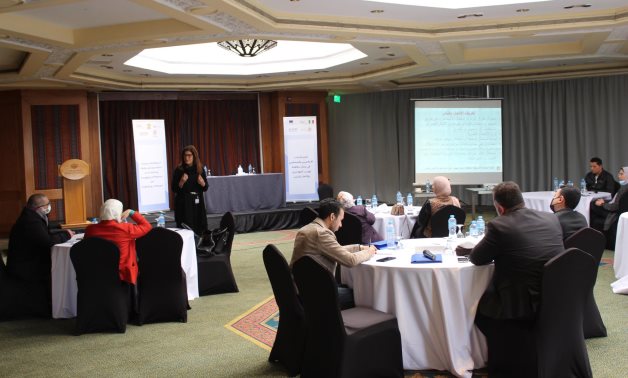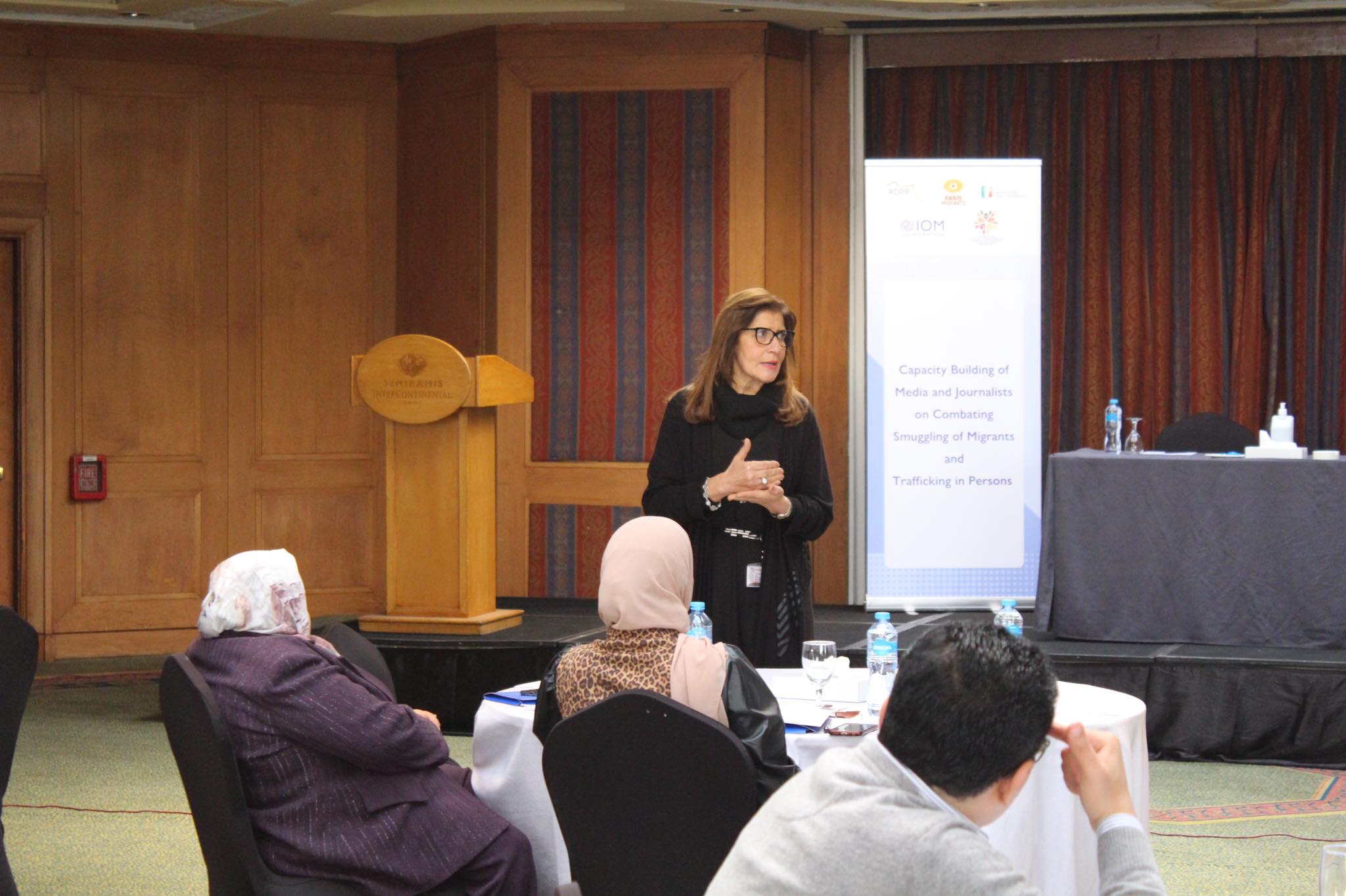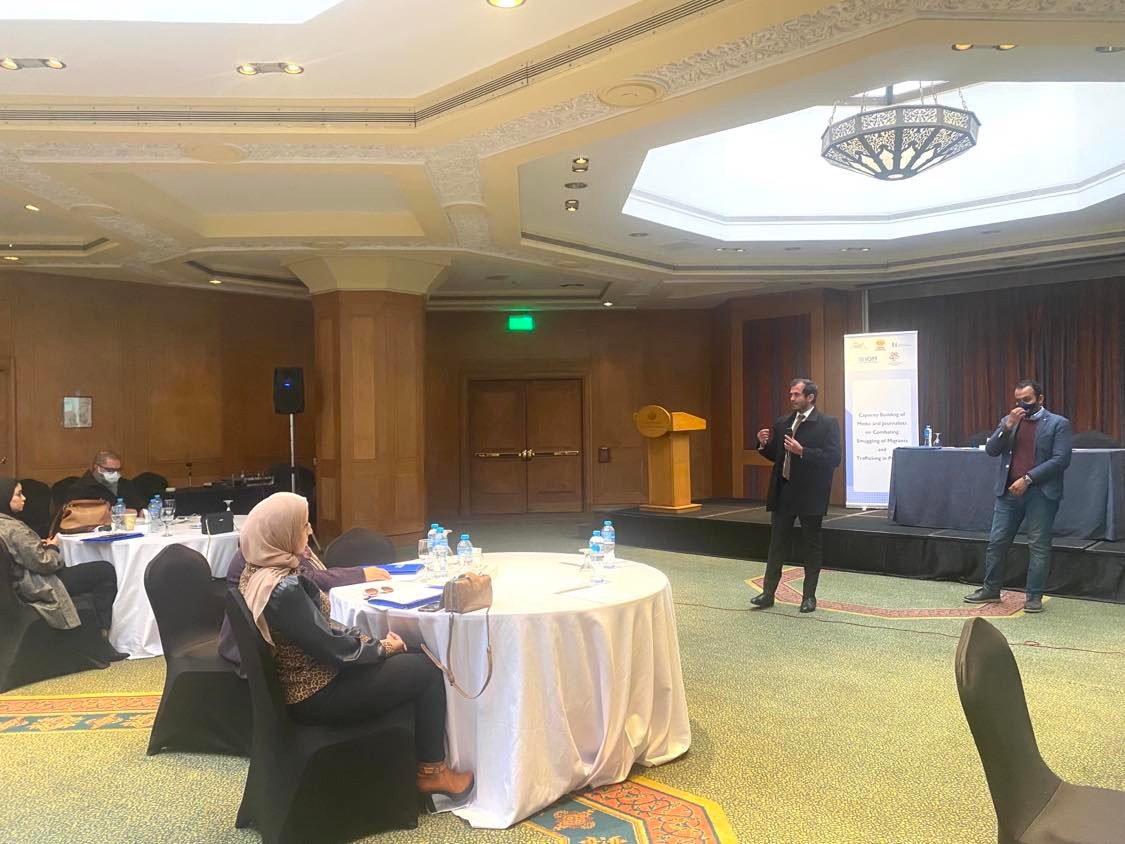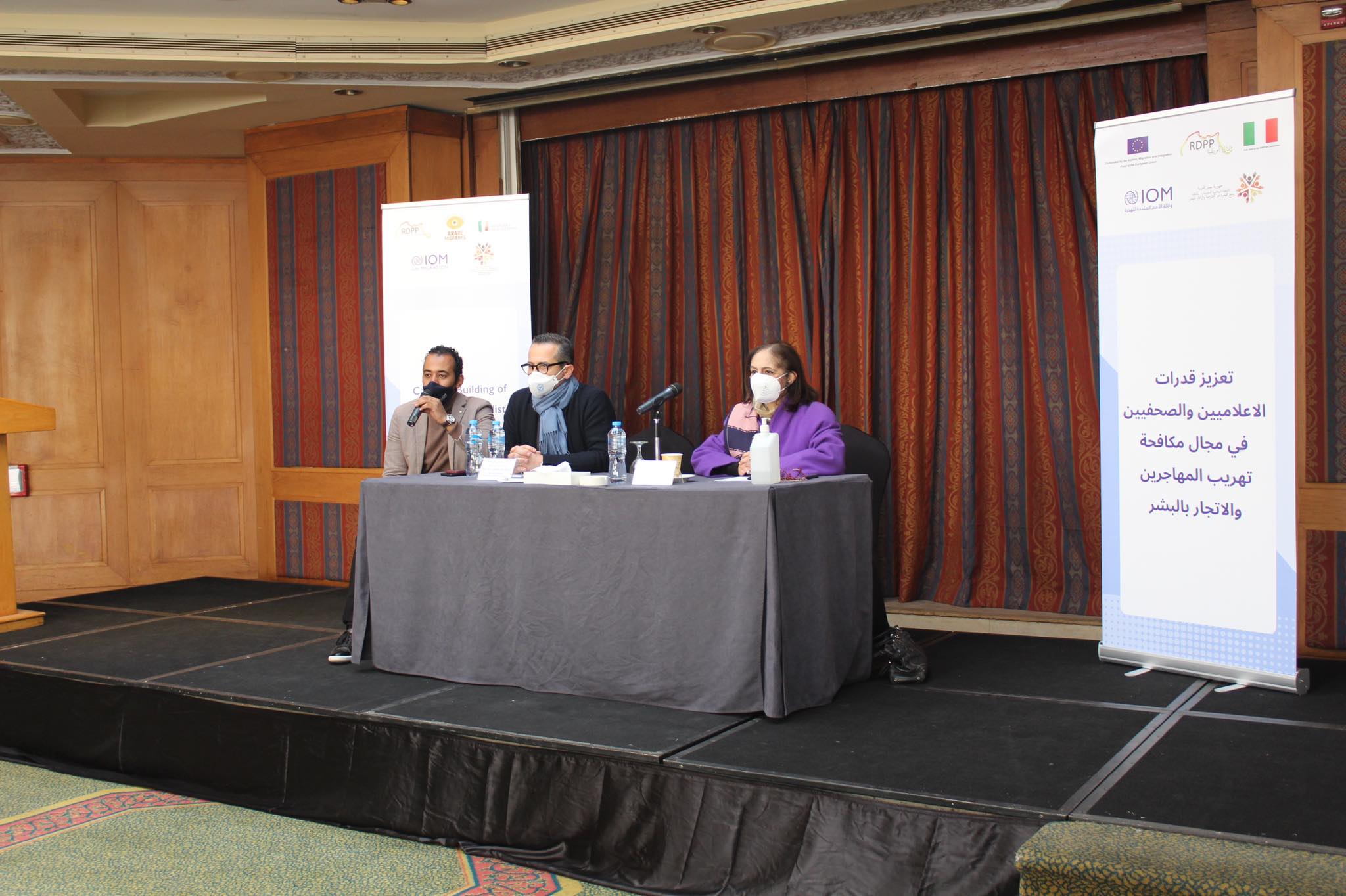
Workshop for journalists on covering irregular migration and human trafficking in Cairo held by IOM and NCCPIMTIP.
CAIRO – 2 February 2022: Journalists make many decisions everyday regarding their content, sources to quote and multimedia to be used, with media ethics, editorial policies and personal values are some of the key factors in making these decisions.
However, covering critical issues like irregular (or illegal) migration and human trafficking, is not usually adequate, but rather found to be holding accountable the victims.
The International Organization for Migration (IOM) in Egypt, in cooperation with the National Coordinating Committee for Combating and Preventing Illegal Migration and Human Trafficking (NCCPIMTIP) held a workshop aiming at capacity building of media professionals and journalists when covering these topics.
Is it “illegal” or “undocumented” migrants?
Emigration or Immigration?
Will I be sued if I revealed personal information of a victim of human trafficking?
Can I run a picture of a dead migrant boy who was washed up on the shores?
Many journalists got mixed up when dealing with terminology, and the use of multimedia, which could unfortunately convey a wrong message about migrants that contribute to their negative portrayal among the audience. UN and media experts highlighted the importance of using the right words when referring to migrants or refugees to address the issue effectively and educate the public.
For example, the term 'irregular' is preferable to 'illegal' migrant because the latter carries a criminal connotation.
They also stressed that revealing personal information and identities of the victims is punishable.
“News coverage is absolutely important, but is not enough, and indepth coverage supported by multimedia, facts and stories can better address the issue,” said Professor of Journalism and Mass communication at The American University in Cairo Dr. Mervat Abou Oaf during the workshop.

She further highlighted the importance of the role played by soft powers if used correctly to “portray a true image about the victims without framing the issue in a certain way.”
Speaking about editorial decisions in tackling irregular migration and human trafficking, Dr. Abou Oaf said that journalists need to consider the consequences of their publishing decisions on the victims, and how it will impact them. Giving examples of tragic photos of victims, Abou Oaf stressed that consent of the persons in the images should be taken without revealing their identities.
“The media is abundant with shallow messages by media cadres who portray undocumented migrants in a punitive and negative way, and unfortunately this negative image is generalized and used for a long time,” she said.

There was a slideshow displaying different international coverages of irregular migration issue through photos, with some papers showed undocumented African and Syrian migrants drowning in the sea, stirring empathy towards them, while others showed them in boats or crossing the fence towards European lands, portraying them as invaders.
During the workshop, videos of campaigns that targeted raising awareness about victims of human trafficking were screened, as well as a clip of a song titled “Fares” produced by UNICEF, blending popular and rap music forms, in a bid to combat irregular migration.
The workshop also highlighted challenges and factors affecting the media and journalists when covering the topics of irregular migration and trafficking in persons. It also provided guidelines for participating journalists to access reliable sources of information, techniques of interviewing victims, and the use of image.
Director of the Human Trafficking Unit at NCCPIMTIP, Yehia Osama, said there are 11 governorates that are exporting irregular migration in Egypt, namely Dakahlia, Qalyubia, Kafr El-Sheikh, Assiut, Beheira, Menoufia, Fayoum, Ghariba, Minya, Luxor and Assiut.
He pointed out that the year 2021 witnessed 156 cases of human trafficking being investigated so far, pointing out that Egypt established the first shelter for victims of human trafficking by the end of 2020.
He said that the forms of human trafficking are different, but a national strategy has been developed to explain everything related to this crime and ways to confront it and then prevent it.
Meanwhile, Mahmoud Imam, Director of the Alternative Opportunities Unit and the First Assistant of the irregular Migration Unit, said that there are seven ministries currently working to provide job opportunities for young people to prevent them from resorting to irregular migration, as it provides them with training to qualify them to work.
Imam said that they held trainings for social workers and members of prosecution to deal with victims of human trafficking, adding that among these victims are unaccompanied minors.
He further highlighted the hotlines provided to report human trafficking or illegal migration cases including:
The National Council for Women (15115) – The National Council for Childhood and Motherhood (16000) – The National Council for Human Rights (15508).
The workshop was held in two groups, over four days, and was attended by around 30 participants from different local media agencies and newspapers.
The launch ceremony was held on January 30, 2022 and was attended by Christian Berger, the Head of the European Union Delegation in the Arab Republic of Egypt; Michel Quaroni, the Italian Ambassador to Egypt, Naela Gabr, the Head of the National Coordination Committee for Combating and Preventing Illegal Migration and Human Trafficking, and Laurent De Bok, the Head of Mission of the International Organization for Migration in Egypt.

"Our cooperation is part of the implementation of two important programs, namely the Regional Development and Protection Program funded by the European Union, and the Conscious Migrants project funded by Italy, and implemented by the International Organization for Migration," Ambassador Naila Gabr said during the opening of the workshop.
She explained that this workshop aims to enhancing capabilities and knowledge of media professionals about these topics, especially those who can play an important role in raising awareness in the society.
She added that these programs support the National Committee in achieving its strategies to combat human trafficking and smuggling of migrants.
For his part, Laurent de Boc, Chief of Mission of the International Organization for Migration, said: “Journalism has the power and plays role in passing the right message to shape our minds, promoting tolerance and understanding through choosing the right words and concepts and accurate understanding. Journalism must shape the future.”
He emphasized that understanding the difference between refugees and migrants, and their basic rights, would in turn enhance respect and protection and encourage the establishment of an inclusive society based on human rights.
Comments
Leave a Comment